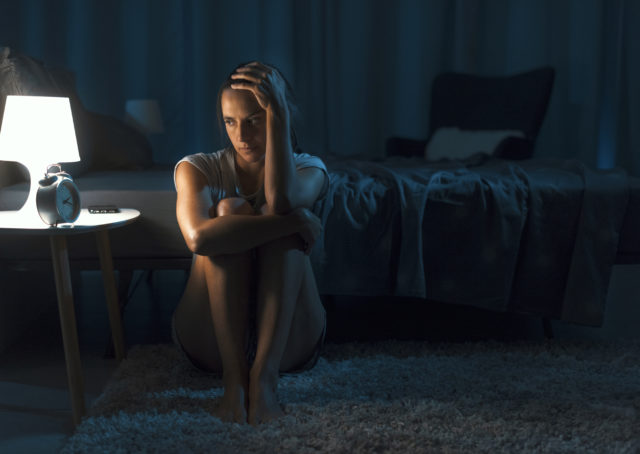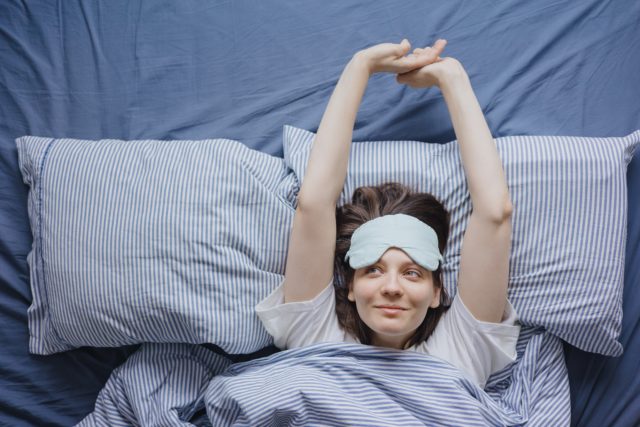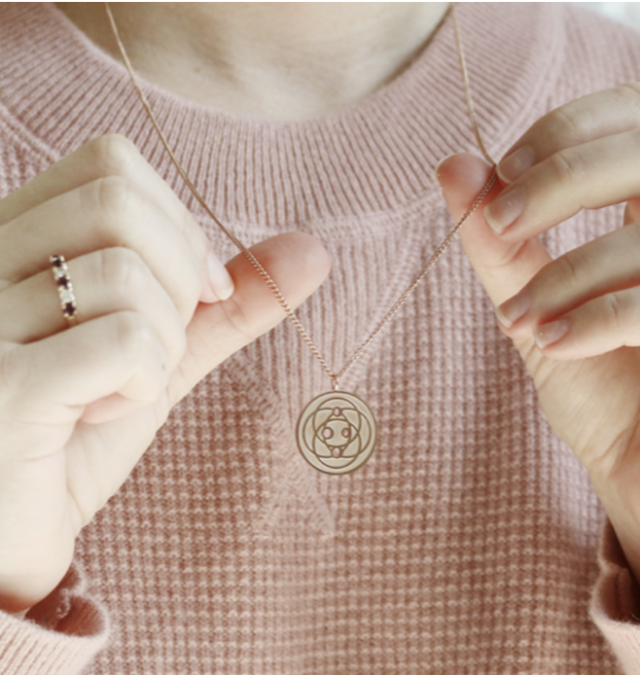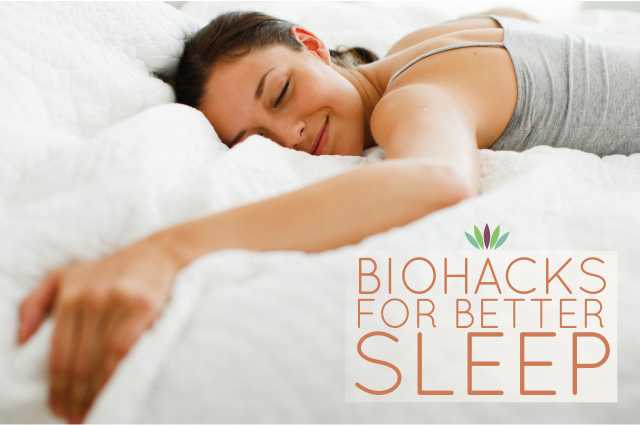Sleep is the single most important thing you must do to improve your health. Shockingly, 40% of Americans get less than 5 hours of sleep per night! Time to biohack your way to better sleep!
Sleep scientist, William Dement, has said that sleep, “is the most important predictor of how long you will live – perhaps more important than smoking, exercise or high blood pressure.(1)” People getting less than six hours of sleep per night were 12 percent more likely to die over a 25-year period than people getting 6-8 hours per night.
Chronic sleep loss contributes to health problems such as weight gain, high blood pressure, heart disease and a decrease in the immune system’s power. In other words, we need sleep (2,3,4,5)!
Why Aren’t You Sleeping Well?

There are so many factors that contribute to poor sleep. These are just a few reasons why your sleep isn’t the best:
- Bad Habits: You’re going to bed too late! I hate to be the be
arer of bad news but you should be in bed by 10 pm. Additionally, all your caffeinated drinks throughout the day are keeping you up in the night too. One cup of caffeine per day is fine, but you can’t drink stimulants all day and expect rejuvenating, restful sleep. - Adrenal Fatigue: Welcome to the club! Lack of sleep, fast paced lifestyles and living on caffeine and sugar are fatiguing your poor adrenals. They produce stimulating hormones like adrenaline and cortisol at the wrong times, keeping you from the very thing you desperately need – sleep.
- Bad Foods: Bad foods include gluten, sugar, processed food, fast food, industrial seed oils, etc. These foods disorder hormone, gut, and brain function and cause an inflammatory immune response in the body. Solution: Listen to your body and rethink your diet to avoid the consumption of the wrong foods.
- Poor Sleep Environment: A few critical errors? Not blocking out ALL light, making the bedroom too warm, sleeping on an old mattress or pillow or not using a sleep mask.
- Gut Bugs: The reason you’re not sleeping well can be due to gut bugs. Parasites are a very common problem and are an often overlooked cause of night waking.
Biohacks for Better Sleep

1. Be in bed by 10pm
I realize this is a tough one. But you have to be disciplined and set up your lifestyle so that you can reset your sleep cycle. I am amazed that I sleep so much longer when I go to bed earlier. Your body creates a cortisol surge after 11 pm to keep you awake.
2. Avoid Light at Night
Newsflash: Technology is disrupting your sleep. Light exposure before bedtime can suppresses melatonin by more than 50 percent. This means limiting or avoiding all screen time two hours before bed or use f.lux.com or blue light blocking glasses. Fat chance; I know.
Ideally, avoid ‘exposure’ to any bright lights two hours before bed so your body will be cued to produce melatonin and induce sleep. This means less bright lighting at night, as well eliminating, or at least dimming, computer screens and TVs (6, 7).
3. Sleep in Complete Darkness
Eyelids are translucent for a reason. They perceive light and signaled to our friendly cavemen when it was time to begin the hunt. Today, translucent eyelids serve mainly to disrupt our sleep! Even a small amount of light at night can disrupt circadian rhythms and sleep quality (8).
Create darkness by using a sleep mask and sleeping in a darkened room by removing even the tiniest, dimmest light sources. Blackout curtains are a great solution. Remove or cover night lights, LEDs and alarm clocks. Just one pulse of light can suppress melatonin production and wake you up. Don’t turn on lights if you get up to go to the bathroom. Sleep walk Helen Keller style to the potty. Resist the urge to look at your phone!
4. Daytime Light Exposure
Exposure to light during the day, as our fellow caveman would have experienced, is essential to improve sleep. Since our eyes cue melatonin production, avoid wearing sunglasses when performing a primal sunbathing session. Get at least 30 minutes of exposure to bright sunlight every day. It’s best to get sun exposure several times per day, especially in the early morning to cue our circadian clock (10). Can’t get sun exposure? Sit next to a window, turn your computer to maximum brightness and turn on as many lights as you can during the day!
5. Create Your Cloud
Your pillow, sheets and mattress should be high quality. Treat yourself to new pillows and a comfy down comforter and silky sheets. It’s makes a huge difference! Sheets made with formaldehyde, which include all permanent press sheets, are shown to cause insomnia. It’s time to invest in some high quality, natural, organic cotton sheets!
Also remember to keep your bedding up to date. Mattresses need to be changed every 5-10 years. Change pillows every 6 months to a year. Our bedding absorbs skin cells, bacteria, perspiration and more, which is affecting your health and causing daytime sleepiness.
6. Reduce Body Temperature
Ideal sleeping temperature is between 60 and 68 degrees. Of course, everyone is different, but this is the ideal. You can reduce your body temperature by taking a bath. Even though the bath heats you up, the cooling of your body temperature afterwards makes you sleepy (11).
I love to take Epsom salt baths. Put 4-5 cups of Epson salt in your bath. The magnesium in it will relax your muscles and induce sleep. It’s relaxing, therapeutic and will guarantee you a trip to lalaland.
7. Minimize EMF
EMFs (electromagnetic fields) can disrupt your body’s natural rhythms by impacting your body on an energetic and electrical level. That’s right, your body’s electrical currents and energetic field are the basis for pretty much every function it carries out[12]. EMFs affect everything from your body’s ability to produce melatonin to your brain’s theta waves to causing dysregulation in your sympathetic nervous system. I go a lot more in depth on the EMF – sleep connection in this article.
It is very important to reduce your exposure to Electromagnetic Fields (EMFs). This entails unplugging anything electrical near your bed, especially near your head, not sleeping with your cell phone near your bed (ideally a few rooms away in airplane mode), moving your computer to another room, turning off wireless internet, and ideally not having wireless internet in your home.
 I also highly recommend the Harmoni Pendant for minimizing the stressful effects of EMFs. The Harmoni Pendant is a wearable pendant that can help mitigate the impact from EMFs when you’re not able to eliminate them entirely in your environment.
I also highly recommend the Harmoni Pendant for minimizing the stressful effects of EMFs. The Harmoni Pendant is a wearable pendant that can help mitigate the impact from EMFs when you’re not able to eliminate them entirely in your environment.
It not only helps you combat some of the stress caused by EMFs, it can also help you release negative energetic blockages in your field caused by physical and emotional stress.
8. Food Timing
Don’t eat within the three hours before bed! Your last meal should be between 6-7pm. A common cause of nighttime waking is eating a big meal or a sugary or refined grain snack before bed. This will increase insulin, causing hypoglycemic or low blood sugar crashes at night. When you have low blood sugar, the body releases cortisol to increase it. What’s even worse is that it causes a dysregulation of your circadian rhythm with your two master hormones, ghrelin and leptin, that control your metabolism and hunger cues the following day.
9. Caffeine
This may go without saying, but a lot of people break this cardinal rule. You cannot enjoy quality sleep if you have stimulants in your system! Avoid caffeine after 2pm, but ideally be done by noon.
The half life of caffeine is six hours, so a good majority of it is still in your system many hours later. Any consumption after 2pm is likely to interfere with sleep.
10. Alcohol
Avoid alcohol before bed. You may have to give up alcohol if you want to rehab your sleep. Alcohol may help you relax and fall asleep faster, but the metabolic process of clearing it from your body causes a withdrawal period that’s significant enough to disrupt your sleep. Not all sleep is good sleep!
Alcohol is also known to disrupt the sleep cycles, preventing you from achieving normal periods of REM sleep. When you drink alcohol close to bedtime, you can go straight into deep sleep, missing out on the usual first stage of sleep, called rapid eye movement (REM) sleep. As the alcohol starts to wear off, your body can come out of deep sleep and back into REM sleep, which is much easier to wake from. That’s why you often wake up after just a few hours sleep when you’ve been drinking.
11. Sleep Apps
Download my favorite iPhone sleep app, called SleepCycle, in order to track your regular sleep patterns. You just put your phone on your mattress, under your top sheet, and set the alarm. It will track your sleep quality using the microphone on your phone, and wake you feeling more refreshed at the top of a sleep cycle. Do it for at least a week, so you get a sense of your baseline sleep quality.
Important: Make sure you put your phone on airplane mode so you don’t cook your head with EMF’s!SaveSave










